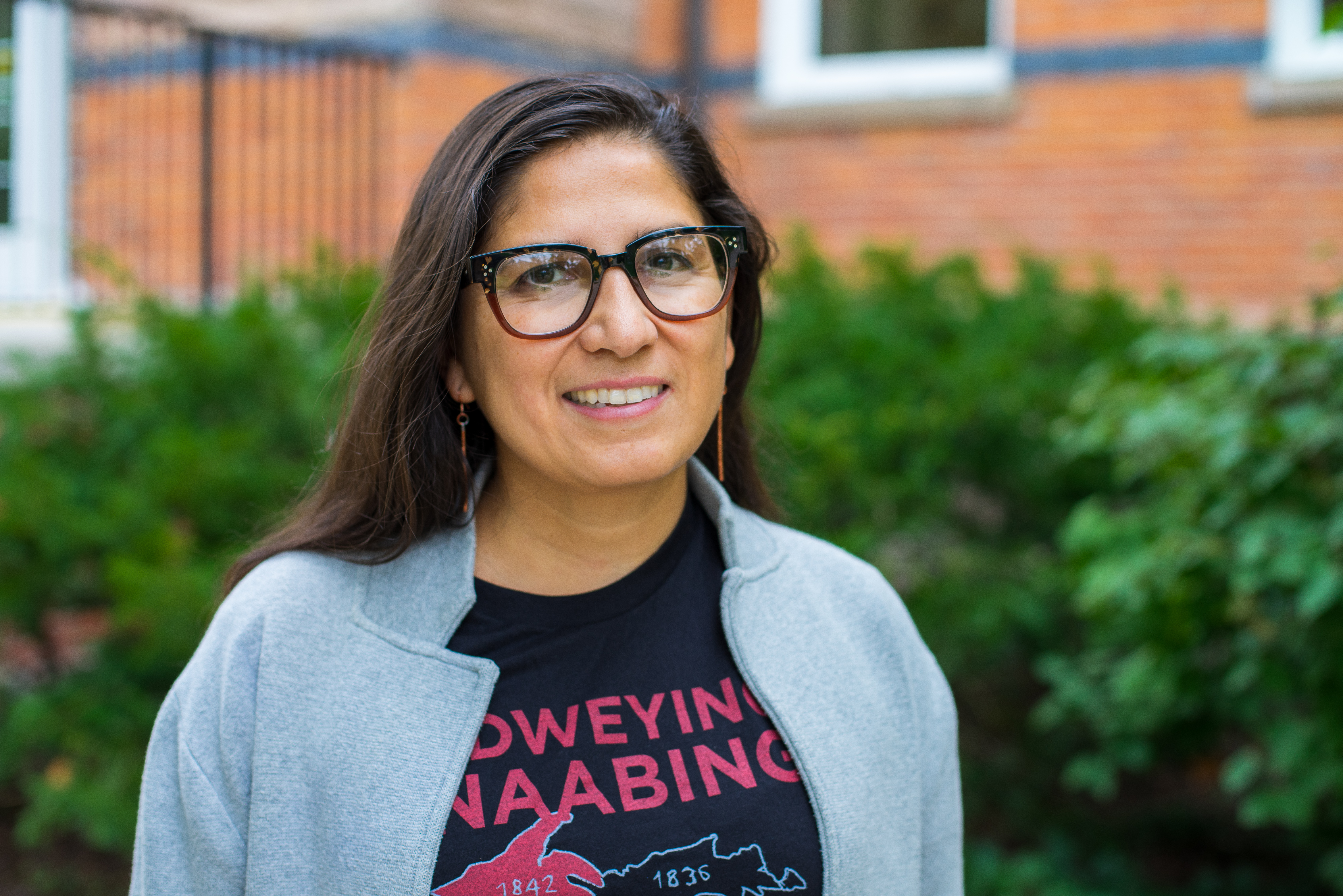CLS Research Spotlight: Estrella Torrez
October 14, 2024 - Karessa Weir
As a researcher, teacher, and advocate, Estrella Torrez has worked in all types of learning environments.
As an Associate Professor in the Residential College in Arts and Humanities and a Chicano/Latino Studies core faculty member, Dr. Torrez teaches the importance of community-based knowledge, particularly among rural Latino families and urban Indigenous youth. At MSU, she has taught community-engaged courses for over 15 years with Greater Lansing area Latinx and Indigenous youth.
 She also co-facilitates the Indigenous Youth Empowerment Program, an afterschool program for kindergarten through 12th-grade youth.
She also co-facilitates the Indigenous Youth Empowerment Program, an afterschool program for kindergarten through 12th-grade youth.
In 2013, she initiated the Nuestros Cuentos collaborative project with the college Assistance Migrant Program and the Lansing School District. In 2023, she was appointed to the East Lansing Public School Board of Education.
Dr. Torrez is co-authoring an academic article with two undergraduate students – including CLS minor Fatima Nuñez-Sanchez – based on research with Latinx youth in the Lansing School District, and a CLS course focused on Latino leadership. Dr. Torrez met when Fatima was in the 9th grade through the Latino Club in Lansing School District.
"She was super active, and we became really close," Dr. Torrez said. "She was a quiet kid, so smart and so invested."
After Fatima came to MSU, Dr. Torrez introduced her to another student—both were women of Mexican descent and first-generation college students.
"We talked about our similar experiences and how to navigate higher education being first gen, particularly being a Mexican eldest daughter," Dr. Torrez said.
The trio investigated mentorship's role in effective afterschool programs for Latinx youth. Then COVID happened, and the group pivoted to online meetings and began discussing their own experiences with mentorship and how to navigate the world around them. Integrating the scholarship Fatima learned through her CLS courses, the research group developed a mentorship model specific to Latinx youth in Michigan. In 2022, the co-researchers presented the research at the American Education Research Association annual conference with plans to submit an article based on this work to an academic journal.
Dr. Torrez said. "It's really important to have a mentor who understands your particular experience so you don't have to constantly explain or justify why particular things are difficult." She emphasized the importance of CLS in creating this space for MSU's Latinx students and faculty.
The research also emphasized the need for an individual to have a network of mentors who are peers, including those who are both older and younger. Dr. Torrez stresses how much she learns from working with the students she mentors.
"It can be a hard lesson to learn that somebody older can depend on somebody younger," she said. "It's a humbling experience to just sit back and really listen – make sure they aren't deferring to me all the time. To reassure them that we are working together in collaboration."
In addition to her research, Dr. Torrez is developing a new project with the Lansing School District's Newcomer Center and the Immigrant Research Resource Collective. The project will include students from the Residential College in the Arts and Humanities and Chicano/Latino Studies.
"It's a space to help them transition not only to the school district but also to their new community," she said. "I'm working with the school district to develop arts-based programming to support placemaking and community building for 9th to 12th-grade students. Students from RCAH and CLS have a unique perspective that is ideal for working with the district's newcomer youth."

